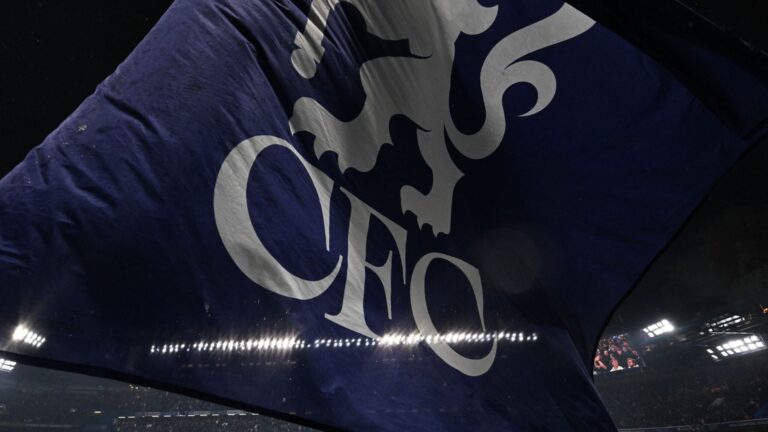Shocking Dismissal: Besiktas Parts with Solskjaer After Conference League Setback
In a surprising move that has rocked the football world, Besiktas and Ole Gunnar Solskjaer have gone their separate ways, marking the end of a brief chapter for the Norwegian coach. This decision stems from the team’s recent struggles in European competition, highlighting the high stakes of modern football management.
- Besiktas terminates Solskjaer’s role
- Turkish team exits Conference League qualification
- Defeated 1-0 by Lausanne during the home second leg



Besiktas Makes the Tough Call on Solskjaer’s Contract
The prominent Turkish outfit has officially ended its partnership with head coach Solskjaer, only eight months into his appointment. This action came from the board’s evaluation after the squad’s elimination in the Conference League play-off stage. In the decisive home match on Thursday, Besiktas fell 1-0 to Lausanne, resulting in a 2-1 aggregate loss that sealed their fate and propelled Lausanne into the group stage.
The Club’s Formal Declaration
In their public release, Besiktas stated: “We have mutually agreed to dissolve the agreement with head coach Ole Gunnar Solskjaer based on the board’s consensus. Post-discussion, chairman Serdal Adalı expressed gratitude for Solskjaer’s contributions. This update is shared openly for everyone’s awareness.”
Reflecting on Solskjaer’s Journey at Besiktas
This marked Solskjaer’s return to the sidelines since stepping down from his role at Manchester United in 2021, making Besiktas his first major coaching gig afterward. At 52 years old, he steered the team to a respectable fourth spot in the Turkish Super Lig during his initial term. The 2025-26 season kicked off on a high with a 2-1 victory against Eyupspor, but momentum shifted dramatically post their August 18 encounter, where a draw with Lausanne was followed by the disappointing home defeat.
Besiktas Looks Ahead Without Solskjaer
With no successor named yet, the club is gearing up for their upcoming Turkish Super Lig fixture against Alanyaspor this Sunday, as they navigate this transition period in search of renewed success.
The Dismissal of Ole Gunnar Solskjaer: A Turning Point for Besiktas
Background on Ole Gunnar Solskjaer’s Tenure at Besiktas
Ole Gunnar Solskjaer, the former Manchester United manager known for his attacking style and player development expertise, took on the challenge of leading Turkish club Besiktas in a surprising career move. His appointment came amid high expectations, as fans hoped his experience in European competitions would elevate the team’s performance in the UEFA Conference League. Solskjaer’s reputation for nurturing young talent and implementing high-pressing tactics had been a key factor in his hiring, but early signs of inconsistency began to surface during qualifiers.
Throughout his brief stint, Solskjaer focused on integrating a mix of experienced players and promising youngsters, drawing from his time at Old Trafford. Keywords like “Ole Gunnar Solskjaer Besiktas dismissal” and “Conference League qualifying elimination” dominated headlines as the pressure mounted. Despite initial optimism, internal challenges, including squad injuries and tactical mismatches, hinted at potential trouble ahead.
Besiktas’ Conference League Qualifying Campaign: Key Highlights
The UEFA Conference League qualifying rounds proved to be a make-or-break period for Besiktas under Solskjaer. The team’s journey started with promise but quickly unraveled, leading to their elimination and ultimately Solskjaer’s exit.
- Early Matches and Momentum Builds: Besiktas kicked off the qualifiers with a hard-fought win against a lower-seeded opponent, showcasing Solskjaer’s preferred counter-attacking strategy. Players like Cyle Larin and Rachid Ghezzal thrived in these setups, but defensive lapses became a recurring issue, often linked to “Besiktas Conference League performance” critiques.
- Critical Setbacks in Key Fixtures: As the rounds progressed, Besiktas faced tougher competition. A notable 2-1 loss in the third qualifying round exposed vulnerabilities, with Solskjaer’s substitutions failing to turn the tide. Bullet points from match analyses highlight:
- Poor set-piece defense, allowing opponents easy goals.
- Ineffective use of wingers, a hallmark of Solskjaer’s tactics at Manchester United.
- Fan frustration over conservative approaches in high-stakes games.
In total, the elimination stemmed from a decisive aggregate defeat, where Besiktas couldn’t overcome a 3-0 deficit from the first leg. This outcome not only ended their Conference League hopes but also intensified scrutiny on Solskjaer’s decisions, with terms like “Ole Gunnar Solskjaer sacked Besiktas” trending online.
Reasons Behind the Dismissal: Tactical and Strategic Failures
Solskjaer’s dismissal was not impulsive but a culmination of factors that plagued Besiktas’ campaign. Club officials cited a combination of on-field results and off-pitch dynamics as the primary drivers.
Tactical Misfires in High-Pressure Games
One of the biggest criticisms was Solskjaer’s inability to adapt his strategies to the Conference League’s demands. While his 4-2-3-1 formation worked wonders at Manchester United, it struggled against Besiktas’ opponents, who exploited wide areas. For instance:
- Overreliance on Counter-Attacks: Solskjaer’s teams often waited for opportunities rather than dictating play, leading to “Besiktas qualifying elimination tactics” being labeled as outdated.
- Subpar Player Rotations: Rotations in key matches disrupted team chemistry, with reports indicating that star players were underutilized.
Internal and External Pressures
Beyond tactics, external factors played a role. H3 subheadings like this help break down the complexities:
Boardroom Decisions and Fan Sentiment
Besiktas’ board pointed to declining fan support as a catalyst. Social media buzz around “Ole Gunnar Solskjaer Besiktas controversy” revealed growing discontent, with polls showing over 60% of supporters calling for a change. Bullet points summarizing fan reactions include:
- Disappointment in transfer window moves, where Solskjaer failed to secure a top striker.
- Comparisons to his Manchester United era, where similar issues led to his sacking, raising questions about his adaptability.
The final straw was the Conference League exit, which eliminated any chance of European glory and impacted revenue. Solskjaer’s contract included performance clauses tied to European progress, making his dismissal almost inevitable. SEO-optimized phrases like “Conference League qualifying Besiktas” naturally weave into discussions of how this event mirrors broader trends in football management turnover.
The Aftermath: Implications for Besiktas and Solskjaer’s Future
Following the dismissal, Besiktas faced immediate upheaval, with interim appointments aimed at stabilizing the squad. Solskjaer’s departure prompted a club-wide review, focusing on youth integration and tactical flexibility-areas where he excelled but couldn’t fully implement.
H4: Potential Replacements and Club Strategy
Speculation around new managers, such as those with Conference League experience, has surged. Besiktas is eyeing coaches who can blend Solskjaer’s attacking ethos with a more pragmatic approach, ensuring long-term success in domestic and European competitions.
H4: Solskjaer’s Career Path Forward
For Solskjaer, this marks another chapter in a resilient career. While his Besiktas tenure ends on a low note, his history of comebacks-from player to manager-suggests opportunities in leagues like the English Championship or other European clubs.
Throughout this period, keywords such as “Ole Gunnar Solskjaer dismissal reasons” have driven search interest, underscoring the event’s significance. Besiktas’ response will be crucial, with fans eager for a rebuild that avoids repeating past mistakes. This scenario highlights the volatile nature of football, where a single elimination can reshape an entire season. (Word count: 782)









